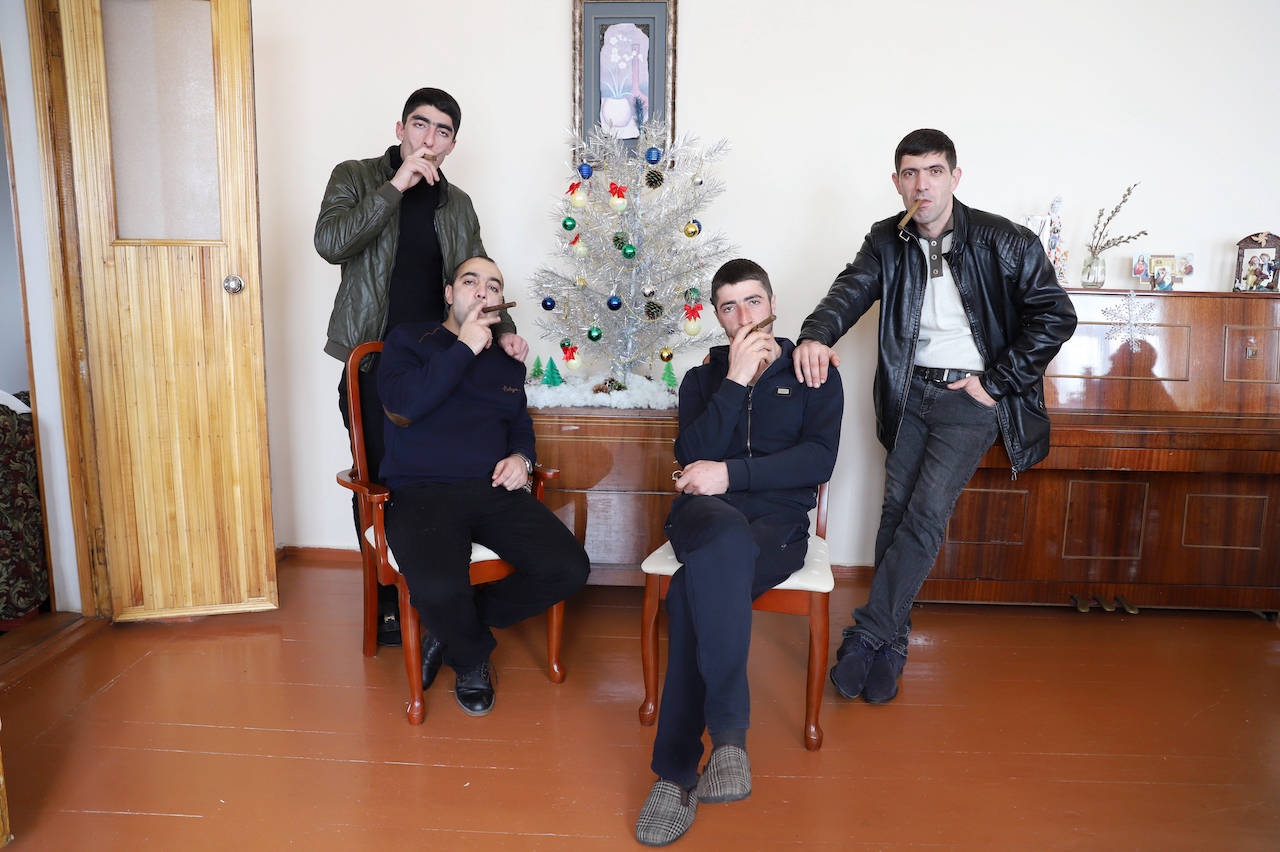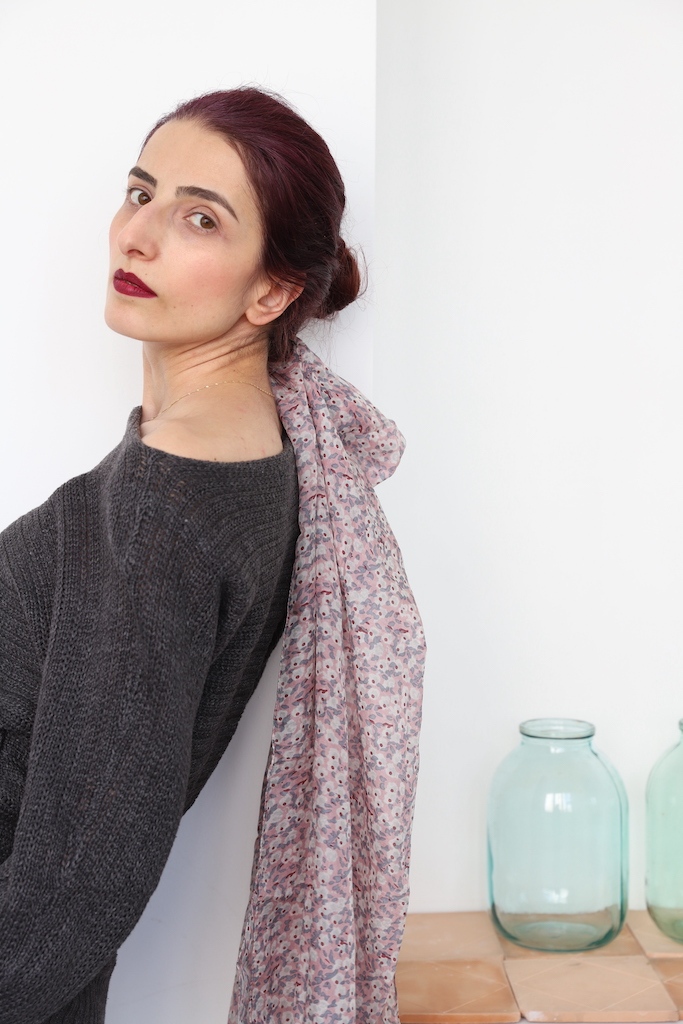Hold the Freedom Door, Hodor!
Ամառվա կեսի վերջին օրն է։ Երեւանում հուլիս ամսվա համար տարօրինակ բեռլինյան եղանակ է՝ բացուխուփ ամպերով, ցածր թռչող ծիծեռնակներով, երբեմն կաթացող անձրեւով, որ թրջում է սրճարանի մոխրամանը։ Ամպերը հյուսքեն-հյուսքեն՝ մոխրագույնի գալարներով, ճամփորդում են դեպի հյուսիս՝ դեպի այն փոքրիկ քաղաքը, դեպի այն բոլոր հայկական քաղաքները, որտեղ գոյություն չունեն սրճարաններ։ Որտեղ մայթի վրա չեն մլմլում փոքրիկ սեղանները՝ իրենց մոխրամաններով, քամուց փռփռացող իրենց ծածկերով, կյանք տվող իրենց առօրեականությամբ, սուրճից առույգացած վերջին հորանջով, թրջված թերթերով, որ արդեն չորացել են արեւի տակ ու վերեւ պարզել դեղնած բերանները։ Ոչ մի երիտասարդ կին կամ տղամարդ չի լքում դրանք՝ հանգստությունից խոնջացած, միտքը հաջորդ անելիքի վրա։ 10-20 հազար բնակչություն ունեցող քաղաքներ են սրանք՝ Հայաստանի տարբեր ծայրերում նստած՝ իրենց շուրջը հավաքած նաեւ շրջանի գյուղերը, վարելով նաեւ դրանց կյանքը, բայց եթե որեւէ ծանոթի հանդիպելու լինես այնտեղ, չես իմանա՝ որտեղ կարող ես դա կազմակերպել։ Իհարկե, միշտ կան հյուրընկալ տները՝ սկուտեղներով՝ սուրճի ու դիմացի խանութից արագ գնված թխվածքի, բայց դարդդ քո սեփական հանդիպման կազմակերպումը չէ, որը, այսպես, թե այնպես, տարին մեկ է լինելու կամ երկու։ Հարցը այնտեղ ապրող մարդիկ են՝ մանավանդ երիտասարդները, որ իսկապես չգիտեն՝ որտեղ ապրել կյանքը։ Կինո, թատրոն, պոեզիա, սրճարան. նրանք, իհարկե, գիտեն մայրաքաղաքային այդ բաների մասին։ Բայց պատերազմներ են գնացել ու եկել։
Քաղաքապետերը փոխվում են՝ մայթերի վրա թողնելով իրենց լուսանկարներով թռուցիկները, բայց գործի անցնելուց հետո հոգ չեն տանում կյանքի մասին, այլ միայն ասֆալտ են փռում օրնիբուն, իսկ իմ ծննդյան փոքրիկ քաղաքում եղածը անգամ ասֆալտ չէ, այլ տուֆ քարից հավաքված անճոռնի լայն արահետներ, որի վրա կուչուձիգ է լինում մեքենան։ Դե տուֆն այնտեղ շատ է, բայց կյանքն է քիչ։ Քաղաքապետերը համարյա միշտ չգիտեն՝ ինչպես ապրեցնել մարդկանց։ Չգիտեն՝ ինչ մարմին ունի կյանքը։ Հաշվում են միայն իրենց բացվող խանութներն ու դրանց մեջ ծվարած մանր կամ մեծ առեւտուրը։
Ու երիտասարդներին ճանապարհում են Ռուսաստան՝ փող բերելու, բայց լավ չգիտեն, որ փողի հետեւից չէ միայն, որ նրանք գնում են այնտեղ, այլեւ մի կտոր կյանքի՝ ամբողջ օրվա տանջանքից հետո սրճարանում կամ բարում ազատ մի աղջկանից ստացած մի փոքր գգվանքի կամ դրա պատրանքի։ Փողից չէ, ազատության թանկությունից է, որ այս քաղաքներում չեն ճարվում սրճարաններ, մարդիկ իրարից վախենալով են ծախսում իրենց ազատությունը, ու իմ զարմիկների նման, որ երկու պատերազմի են մասնակցել, տան Նոր տարվա կամ ամառվա մի երեկոյի մեջ բերանն են դնում քրոջից նվեր ստացած սիգարը, որն անգամ չգիտեն՝ ինչպես ծխել։
Hold the Freedom Door, Hodor!
Es ist der letzte Tag mitten im Sommer. Ein seltsames Berliner Juliwetter herrscht in Jerewan, mit bedecktem Himmel, tief fliegenden Schwalben und manchen Regentropfen, die den Aschenbecher des Cafés füllen. Die Wolken rollen grauen Spiralen gleich gen Norden, in die kleine Stadt, in all die kleinen armenischen Städte, in denen es keine Cafés gibt. Wo auf den Bürgersteigen keine kleinen Tische leuchten, bedeckt mit vom Wind flatternden Tischdecken und Aschenbechern obendrauf, die dem Alltag Leben einhauchen, dem vom Kaffee aufgeweckten letzten Gähnen, mit durchnässten Blättern, die bereits in der Sonne getrocknet sind und ihre vergilbten Münder gen Himmel richten. Keine von der Ruhe erschöpften jungen Männer und Frauen verlassen diese Tische mit dem Gedanken im Kopf, was als Nächstes zu tun ist. Diese Städte liegen in allen Teilen Armeniens, haben 10 bis 20.000 Einwohner, sind umgeben von den Dörfern der Region, deren Leben sie auch führen – wenn man dort einen Bekannten treffen wollte, wüsste man nicht, wo dieses Treffen stattfinden könnte. Klar gibt es sie dort auch, die gastfreundlichen Hotels, die auf Tabletts Kaffee und Kuchen, den sie mal eben im Laden gegenüber gekauft haben, servieren, aber man sorgt sich nicht um das eigene Treffen, das ohnehin nur ein- oder zweimal im Jahr stattfinden wird.
Man sorgt sich um die dort lebenden Menschen und vor allem die jungen Leute, die tatsächlich nicht wissen, wo sie das Leben leben sollen. Kino, Theater, Poesie, Cafés – über diese Dinge in der Hauptstadt wissen sie natürlich Bescheid. Und zwischenzeitlich sind Kriege gegangen und gekommen.
Die Bürgermeister wechseln, sie hinterlassen Flugblätter mit ihren Fotos auf den Bürgersteigen, doch nach der Wahl kümmern sie sich nicht um das Leben, sondern legen jeden Tag nur neuen Asphalt – und in meiner kleinen Geburtsstadt ist es nicht einmal Asphalt, sondern hässliche breite Straßen aus Tuffstein, über die Autos rumpeln. Nun gibt es dort viel Tuff, aber wenig Leben. Die Bürgermeister wissen selten, wie sie die Menschen leben lassen sollen. Sie wissen nicht einmal, wie das Leben aussieht. Stattdessen zählen sie ihre neueröffneten Ladenlokale und den darin versteckten großen und kleinen Gewinn.
Und man schickt die jungen Leute nach Russland, damit sie dort Geld verdienen, ohne zu wissen, dass es nicht das Geld alleine ist, warum die jungen Leute dahin reisen – sondern das Stück Leben oder die Illusion davon, wenn man nach einem langen Arbeitstag in einem Café oder einer Bar von einem Mädchen umschmeichelt wird. Nicht des fehlenden Geldes wegen findet man in diesen Städten keine Cafés, sondern weil die Freiheit viel teurer ist. Die Menschen verbringen ihre Freiheit in Angst voreinander, und wie meine Cousins, die in zwei Kriegen gekämpft haben, nehmen sie an Sylvester oder an einem Sommerabend die Zigarre in den Mund, die sie von der Schwester geschenkt bekommen haben, die sie nicht einmal zu rauchen wissen.
Übersetzung: Anna Yadoyan
Hold the Freedom Door, Hodor!
It’s the last day of midsummer. For a Yerevan July, the weather strangely resembles Berlin’s, with clouds that keep opening and closing, low-flying swallows, and, now and again, a drizzling rain that soaks the ashtray in the café. Twisted into grey braids, the clouds are heading northward toward the little town, toward all the little Armenian towns, where cafés don’t exist. Where the little tables on the sidewalks don’t sparkle, with their ashtrays, their awnings billowing in the wind, their inspiriting everydayness, their last yawn enlivened by coffee, their soaked newspapers that have already dried in the wind and puckered their yellowed mouths toward the sky. Exhausted by inactivity, their minds on what they’ll be doing next, not a single young woman or young man abandons them. These towns are the ones with populations of ten to twenty thousand, perched in this or that odd corner of Armenia, which have gathered their district’s villages around them and rule their lives as well; but if you have a rendezvous with someone in one of them, you don’t know where to organize it. To be sure, there are always hospitable homes with coffee on platters heaped with pastries bought in a jiffy at the store across the way; but your headache isn’t organizing your own get-together, which, somehow or the other, takes place once or twice a year. The question is the people who live there, especially the young ones, who really don’t know where to live life. Movies, theater, poetry, cafes: they know, of course, about those things that the capital has.
The mayors come and go, leaving flyers with their photos on the sidewalks; but, after getting down to work, they don’t worry about life, they just lay down asphalt the whole day long. There’s not even asphalt in my little home town, just hideous, broad, tufa-paved paths on which cars take a pounding. The fact is that there’s plenty of tufa there; life, in contrast, is in short supply. The mayors almost never know how to breathe a little life into people. They don’t know what shape life has. All they count is their newly opened stores and the big or little businesses hunkered down in them.
And the young men are sent off to Russia to bring money home. But they don’t really understand that the men go there looking not just for money, but also for a slice of life, for the little caress or the illusion thereof that they get in a café or bar from a free-and-easy girl after a long and excruciating day’s work. It’s not because of the money, it’s because of the high cost of freedom that cafés don’t open in these towns. People fritter away their freedom on being afraid of each other; and, like my cousins, who have taken part in two wars, they stick the cigar they’ve received as a gift from their sister in their mouths at a house party on New Year’s Eve or on a summer night – the cigar that they don’t even know how to smoke.
Translation: G. M. Goshgarian
Share












